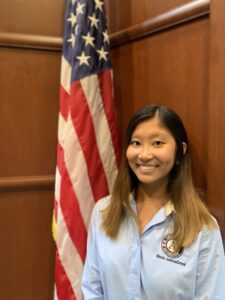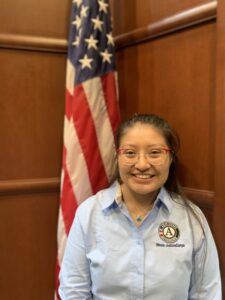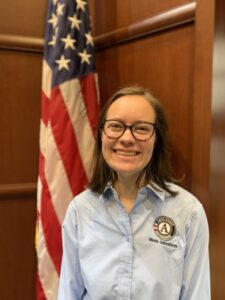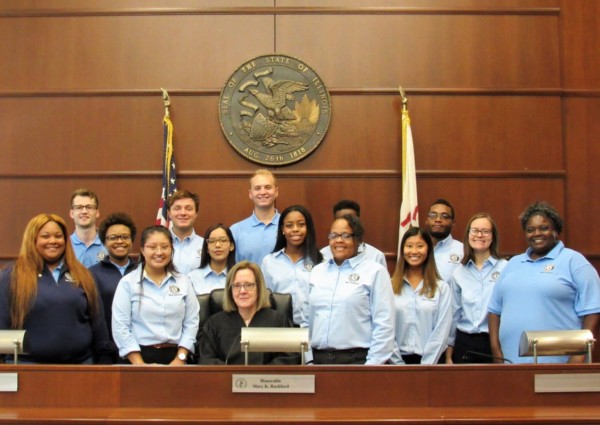By Nicole NeSmith, CARPLS Development & Communications Associate
“People go to court by themselves because they want to.”
“Why wouldn’t they just get a lawyer?”
“What did they do that they needed a lawyer?”
“Why can’t they afford a lawyer?”
“Why do we call them self-represented and not unrepresented?”
With self-represented litigants, or “pro ses,” these are some common misconceptions one might hear.
In fact, an estimated 3 out of 5 civil cases have at least one party appearing without a lawyer or pro se (meaning “for oneself” or “on behalf of themselves” in Latin) because the cost of a lawyer is too prohibitive and there aren’t enough legal aid and pro bono attorneys to meet the need.
In an ideal situation, cases are resolved before they come to the courts. However, many people end up filing and representing themselves. When a client ends up as a pro se, it’s only the beginning of a confusing web. There are numerous forms one needs to fill out or documents to draft, sometimes how and where to file is unclear, the filing fees may be problematic, and many court buildings feel like a maze. In addition, people are often unaware of their potential eligibility for court fee waivers based on income. The courts can be even more difficult to navigate when people have disabilities or speak English as a second language. Even though Chicago is fortunate to have more than 40+ legal aid agencies, we still see many people in a highly anxious state when they are representing themselves in one of the largest court systems in the country.
One initiative that works toward increasing access to the court system for self-represented litigants is Illinois JusticeCorps. In 2009, The Chicago Bar Foundation established JusticeCorps as a pilot program in two courthouses in Cook County. Since then, through partnerships with the Illinois Bar Foundation and the Illinois Supreme Court Commission on Access to Justice, as well as the support of the Serve Illinois Commission and Corporation for National and Community Service, JusticeCorps has grown to be in 13 courthouses in 10 counties throughout the state. JusticeCorps’ specially trained members serve as guides to make the courts more welcoming and less intimidating for people without lawyers. Their mission is to help self-represented litigants access the assistance they need to address vital civil legal problems. Illinois JusticeCorps members learn how to provide legal information, how each courthouse operates, and how to address the practical needs and challenges of self-represented litigants.
Erica Olson, Jessica Acosta, and Lia Raves are three JusticeCorps Fellows this year, all of whom have been serving at the Daley Center since August 2019.

“The process of being a JusticeCorps Fellow is similar to being a host at a restaurant,” Lia says. “The clients talk to us, we talk to them, and we show them where they need to be and help them with whatever we can.”
Sometimes they help people with filing forms in the clerk’s office, sometimes they help people with completing fee waivers and other court forms, and sometimes they just direct people where to go next.
According to Regional Program Manager Cortney Redman at the CBF, it’s all about guiding people without lawyers through a process that is unnecessarily complicated. “Divorce, for instance, is incredibly onerous,” she says. “The legal process is so enigmatic—it’s like a puzzle—and you absolutely need guidance.”
Though that’s obvious to the JusticeCorps team, Lia notes that going through the courts is overwhelming for anyone, as most people don’t understand how difficult it is to navigate the system. “Even in our roles, we can get flustered talking with a court clerk, so how can we expect those with no experience to go through it smoothly? I couldn’t imagine walking into a legal situation with no one in your corner,” she says.

“A lot of them are really intelligent people, but they just don’t understand the law,” Erica adds. “And that’s normal.”
Though many Fellows plan to attend law school down the road, they were still surprised by the continuous need.
“I didn’t expect to see and learn what I have so far,” Erica says. “The number of people that come in and are being evicted, for example, or are trying to get an eviction sealed, is so high.”
“And eviction has such a high stigma attached to it, whether they’re trying to avoid it or trying to get it sealed to move forward,” Jessica says.
This is a microcosm of what’s going on at a national level.
“The market is so upside down when it comes to how much it costs for legal representation. I’m a lawyer and I can’t even afford a lawyer because of how expensive it’s become to obtain legal representation,” Cortney says. “That blows my mind—how could we expect others to afford a lawyer? We need to look at our current laws to see if there’s anything to improve. At the CBF, we are working on law and policy changes that aim to simplify the complex court process as well as change the standards of the legal market. We owe these sorts of changes to the huge number of people going to court without lawyers.”

Erica agrees that it’s “baffling” how confusing the legal process can be at times. “Courts were designed for attorneys, not people looking for solutions.”
All three Fellows are thankful for “the invaluable” legal aid organizations that fill in the gaps.
“I am so grateful that we have folks from CARPLS and other legal aid organizations to help people in need,” Cortney said. “Until we are able to make systemic changes, we need to continue to address the day-to-day needs of people going to court without lawyers. We need more CARPLS and places like it. We need more lawyers considerate of pro bono work.”
CARPLS is proud to be counted in Chicago’s robust legal aid partner network, which includes the Illinois JusticeCorps. “The JusticeCorps are always there to assist people in need,” says Pat Wrona, CARPLS’ Director of Legal Services. “They do a wonderful job of helping people feel more grounded as they make their way through the courts.”


